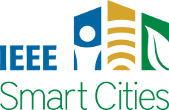Metaverse and Smart Education in the Context of India
Written by Yashvardhan Sharma
As the educational landscape continues to evolve, the need for scalable smart education frameworks will become increasingly important. By incorporating personalized learning, collaborative learning, data analytics, and robust technology infrastructure, a scalable smart education framework through the use of immersive learning via Metaverse and ARVR tools can provide an efficient and effective way of delivering high-quality education to a large and diverse audience.
Introduction
In today's rapidly evolving educational landscape, the need for scalable smart education frameworks has become increasingly important. With the rise of digital technologies, there is a growing demand for education systems that can adapt to changing needs and deliver high-quality educational experiences to a large and diverse audience. In this article, we will explore the concept of a scalable smart education framework and how it can be applied to meet the challenges of modern education.
Smart Education is a field that has been gaining popularity in recent years, particularly in urban areas. However, in order to truly achieve equitable and accessible education, it is important to consider the potential impact of smart education in both urban and rural areas. The Metaverse is one emerging technology that has the potential to revolutionize the way we approach education in both settings. In this paper, we will explore how the Metaverse can be used to enhance smart education in both urban and rural areas, with concrete examples from Indian cities.
Defining a Scalable Smart Education Framework
A scalable smart education framework is a system that can be adapted to meet the needs of different educational contexts and scale to accommodate growing demand. It is characterized by its flexibility, adaptability, and ability to leverage technology to deliver high-quality educational experiences. A scalable framework is designed to provide an efficient and effective way of delivering education, without compromising on quality or accessibility.
Key Components of a Scalable Smart Education Framework [5]
Several key components are essential to building a scalable smart education framework. These include:
Personalized Learning: Although there is no substitute for one-on-one education where teacher and learner are both present in a physical classroom setting, one of the biggest challenges in many of the current educational institutions, especially in the urban areas is the skewed teacher-to-student ratio which obstructs personalized learning environments.
One of the key features of a scalable smart education framework is the ability to provide personalized learning experiences to students. This can be achieved through the use of adaptive learning algorithms that can tailor content and assessments to the unique needs and learning styles of each student.
Collaborative Learning: Another important component of a scalable smart education framework is the ability to facilitate collaborative learning. This can be achieved through the use of online discussion forums, group projects, and other collaborative tools that encourage students to work together and learn from each other. Although there are many such use cases happening, many of them are limited to audio/video and document sharing. With the emerging Metaverse technology, a learner could get an actual immersive experience of being in a classroom and collaborating with other learners.
Data Analytics: A scalable smart education framework should also incorporate data analytics tools that can help teachers and educators to monitor student progress and identify areas where additional support may be needed. This can help to improve student outcomes and ensure that students are receiving the support they need to succeed.
Technology Infrastructure: A scalable smart education framework also requires a robust technology infrastructure that can support the delivery of educational content and assessments. This may include high-speed internet, digital devices, and other technological tools that can be used to facilitate learning.
Application of a Scalable Smart Education Framework
A scalable smart education framework can be applied to a variety of educational contexts, including K-12 education, higher education, and vocational training. In K-12 education, for example, a scalable smart education framework could be used to deliver personalized and adaptive learning experiences to students in different grade levels and subject areas. In higher education, a scalable smart education framework could be used to deliver online courses and degree programs to students in different geographic locations, while also providing opportunities for collaboration and networking.
One example of a scalable smart education framework is the Open Learning Initiative (OLI),[6] which was developed by Carnegie Mellon University. OLI is an open-source platform that provides free online courses and materials for a variety of subjects, including math, science, and engineering. OLI incorporates adaptive learning algorithms and data analytics tools to provide personalized learning experiences to students, while also allowing for collaboration and feedback from instructors and peers. Online learning is also an economically viable option for a lot of existing universities where online classes can deliver high-quality content for students who are unable to attend in-person school due to jobs and other responsibilities. E.g. BITS Pilani a premier institute in India has launched a Work Integrated Learning Platform (WILP) [7] for individuals and organizations as well as an online program [8] for Bachelors in Computer Science in partnership with Coursera.
Metaverse in Smart Education in Urban Areas
In urban areas, the Metaverse can be used to create virtual classrooms that offer students a more engaging and immersive learning experience. For example, in Mumbai, the Aavishkaar Group has launched a virtual reality-based platform called "The Education Tree," which allows students to explore topics such as science, history, and geography in an interactive and engaging way. Students can don virtual reality headsets to visit far-off lands, witness scientific experiments, and explore ancient civilizations. This approach can help to engage students who may be disinterested in traditional classroom learning, and it can also provide a more personalized and adaptive learning experience that caters to the unique needs and learning styles of each student.
In addition to creating virtual classrooms, the Metaverse can also be used to create opportunities for collaboration and networking among students from different urban areas. For example, the Delhi-based startup, Vedantu [1], has launched a platform that allows students to attend online tutoring sessions with teachers from around the world. This platform allows students to access high-quality education from the comfort of their own homes, while also connecting them with a global network of peers and mentors.
Metaverse in Smart Education in Rural Areas
In rural areas, the Metaverse can be used to overcome some of the challenges that students face when it comes to accessing quality education. For example, in the state of Tamil Nadu, the government has launched an initiative called "Smart Classrooms,"[2] which uses technology to bring quality education to remote and rural areas. These classrooms are equipped with digital whiteboards, projectors, and high-speed internet, which allow students to access educational content from around the world. By using the Metaverse, these smart classrooms can also provide students with opportunities for interactive and immersive learning experiences, such as virtual field trips and simulations. In rural settings, one big challenge many learners face is the language barrier. However, with smart education, language barriers for example, for those not having English as their mother tongue can be easily overcome using NLP-based techniques.
In addition to providing access to quality education, the Metaverse can also be used to create new opportunities for vocational training and entrepreneurship in rural areas. For example, in the state of Andhra Pradesh, the government has launched a program called "Real Time Governance,"[3] which uses technology to connect rural artisans [4] with potential buyers from around the world. By using the Metaverse to create virtual marketplaces, these artisans can showcase their products to a global audience, which can help to boost their income and support economic growth in rural areas.
Challenges and Opportunities
While the Metaverse has the potential to enhance smart education in both urban and rural areas, several challenges still need to be addressed. One of the key challenges is the need for reliable and affordable technology infrastructure in both settings. In rural areas, in particular, there is a need for investments in high-speed internet and modern devices, such as smartphones and tablets, which can be used to access educational content.
Another challenge is the need for training and professional development for teachers and educators. In order to use the Metaverse effectively, teachers need to be trained on how to use virtual reality and other technologies in the classroom. There is also a need for ongoing support and training to ensure that teachers are up-to-date with the latest technologies and best practices.
Despite these challenges, the Metaverse presents several opportunities for enhancing smart education in both urban and rural areas. By creating immersive and interactive learning experiences, the Metaverse can engage students who may otherwise not be able to take advantage of in person or 1:1 learning experience.
References
- Live Classes by Best Teachers for CBSE, ICSE, IIT JEE & NEET Prep. (n.d.). vedantu.com. https://www.vedantu.com/
- T. (2022, April 12). Tamil Nadu: Primary schools to get smart classes. The Times of India. https://timesofindia.indiatimes.com/city/chennai/primary-schools-to-get-smart-classes/articleshow/90787522.cms
- Softnio. “India's 1st Real Time Governance Society.”, https://www.rtgs.ap.gov.in/.
- Standard, Business. “Andhra Govt to Provide Modern Tools to Artisans at Subsidised Price.” Business Standard, 6 Nov. 2018, https://www.business-standard.com/article/pti-stories/andhra-govt-to-provide-modern-tools-to-artisans-at-subsidised-price-118110700004_1.html.
- Zhu, ZT., Yu, MH. & Riezebos, P. A research framework of smart education. Smart Learn. Environ. 3, 4 (2016). https://doi.org/10.1186/s40561-016-0026-2
- Open Learning Initiative. (n.d.). Remake Learning. https://remakelearning.org/project/open-learning-initiative/
- Work Integrated Learning Programmes (n.d.). https://bits-pilani-wilp.ac.in. https://bits-pilani-wilp.ac.in/
- Bachelor of Science in Computer Science | BITS Pilani. (n.d.). Coursera. https://www.coursera.org/degrees/bachelor-of-science-computer-science-bits
Keywords: AI; Smart Education; Metaverse; ARVR
This article was edited by Sandeep Shekhawat.
To view all articles in this issue, please go to May 2023 eNewsletter. For a downloadable copy, please visit the IEEE Smart Cities Resource Center.

To have the eNewsletter delivered monthly to your inbox, join the IEEE Smart Cities Community.
Past Issues
To view archived articles, and issues, which deliver rich insight into the forces shaping the future of the smart cities. Older eNewsletter can be found here. To download full issues, visit the publications section of the IEEE Smart Cities Resource Center.



